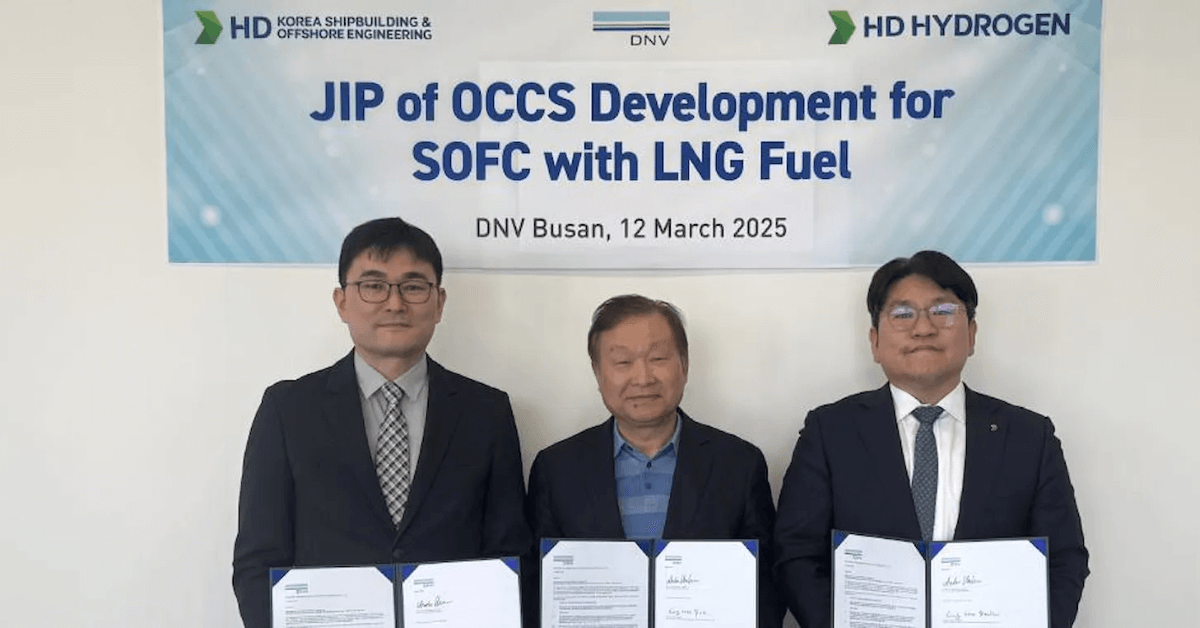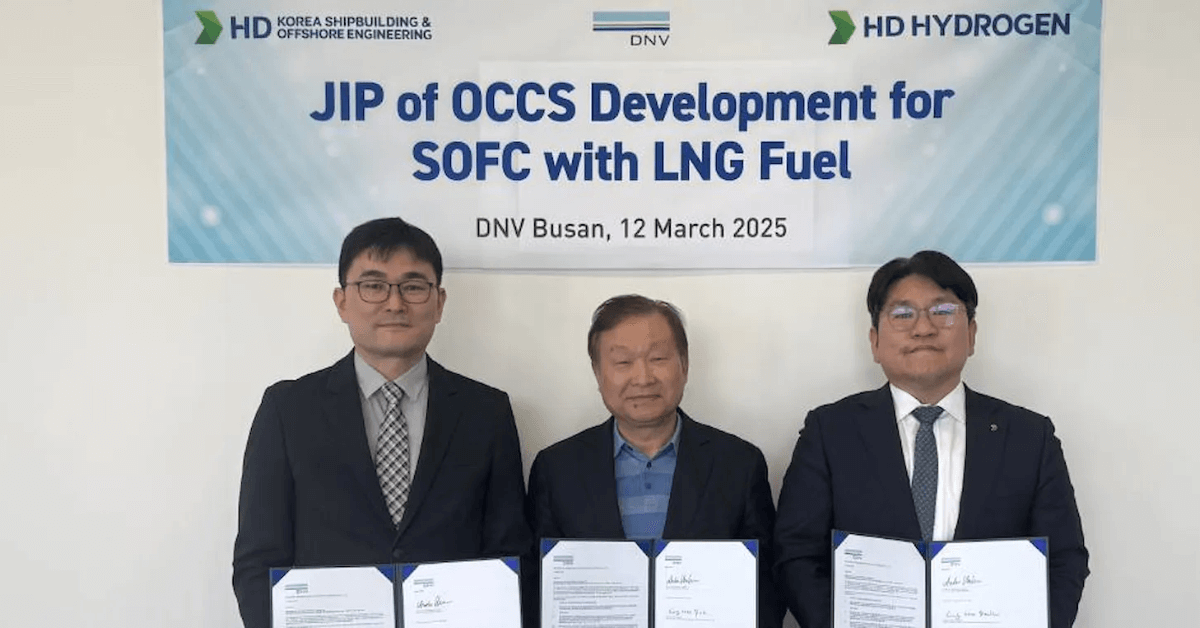
Cruise Ship Passengers Told To Turn Off Lights, Close Curtains In High-Risk Piracy Zone
March 21, 2025
Russia & US To Discuss Black Sea Shipping & Ukraine Ceasefire In Saudi Arabia
March 21, 2025
DNV has partnered with HD Korea Shipbuilding and Offshore Engineering (HD KSOE) and its subsidiary HD Hydrogen to develop a new carbon capture technology for shipboard power systems.
The three companies recently signed a Joint Industry Project (JIP) agreement to focus on integrating Pressure Swing Adsorption (PSA) technology with Solid Oxide Fuel Cells (SOFCs).
The initiative aims to advance decarbonisation efforts in the maritime sector by improving energy efficiency and reducing emissions from ship power generation.
SOFCs are highly efficient power systems that generate electricity using fuels like ammonia, natural gas, or hydrogen.
Through this collaboration, HD KSOE and HD Hydrogen will work on incorporating PSA-based carbon capture technology into SOFCs, making them a viable alternative to traditional marine engines.
The ultimate goal is to replace conventional ship propulsion and onboard power generation systems with fuel cells.
PSA technology works by selectively capturing and releasing CO2 through controlled pressure changes within a capture chamber. This method is estimated to be at least 40% more energy efficient than the conventional CO2 absorption technologies currently used in marine applications.
According to HD Hydrogen, PSA technology plays a crucial role in Carbon Capture, Utilization and Storage (CCUS). The company stated that combining this method with SOFCs, one of the most efficient energy systems available, could greatly contribute to maritime decarbonisation.
DNV discussed the need for a variety of solutions to address shipping industry emissions, stating that decarbonisation remains a complex challenge.
Reference: DNV
Source: Maritime Shipping News


